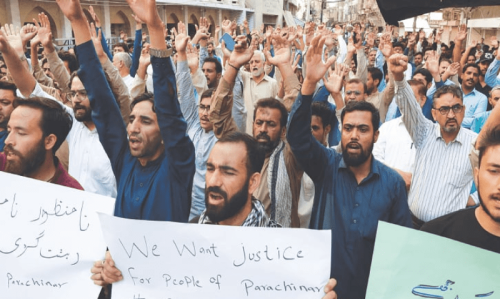PAKISTAN is one of the countries which adopted the United Nations’ 17 Sustainable Development Goals (SDGs) 2030 — also called ‘global goals’ — in order to attain lasting development, peace, and prosperity for its people. It is a matter of much pride that Pakistan was the first country to adopt the SDGs at the country level when it officially passed a parliamentary resolution to this effect in 2016. The Ministry of Planning, Development and Special Initiatives has since established SDG Support Units through provincial planning and development departments to provide guidance on their implementation and track the progress made.
Implementing the SDGs in spirit promises to end poverty and inequality, ensure the protection of the Earth, and ensure that all people on this planet have access to the enjoyment of health, justice, and prosperity. Pakistan has spent eight years engaging with the SDGs and streamlining and localising them. But though it was proactive in adopting the SDGs, their implementation could be better. One wonders how many people know about the SDGs in, for example, Sindh’s Tharparkar and coastal belt. How many SDG-driven schools have been operationalised? How many children at Sindh’s high schools and colleges know about the SDGs? How many introductory sessions have been organised at schools and colleges in Hyderabad?
In mid-2023, I moved to Mithi, Tharparkar, where I asked a member of a local business association about the SDGs. Puzzled, he asked, “What is an SDG?” The reply made me think that if the business community in Sindh was not aware of the SDGs, how could the SDGs be localised and streamlined? An honest, meaningful commitment to achieving SDGs entails localising them on the ground level. The business community, academia, health sector, food entities, builders, exploration and production companies, universities, development sector, transportation sector, and parliamentarians all need to educate themselves on SDGs and think about what practical initiatives they can take in this regard.
A much-needed step in streamlining and localising the SDGs is to translate them into local languages. For example, in Sindh, these languages would include Sindhi, Urdu, Marwari, Brahvi and Dhatki. In Tharparkar (as well as a large portion of the areas that comprise the Mirpurkhas division), Dhatki is the most common language spoken locally. Access to a Dhatki version of the SDGs would greatly help the locals as they go about planning their future business and non-business activities.
Translating the SDGs into local languages can help in their adoption.
There is a pressing need for the Sindh Education and Literacy Department, in consultation with the Sindh SDG Support Unit, to develop an object-oriented edutainment booklet that can help make students and teachers aware of the SDGs and their practical applications in real-world scenarios. A weekly session on SDGs and what possible ideas can be drawn from SDGs should be discussed, evaluated, and projected.
If one is to think opportunistically, the Sindh government is currently reconstructing the flood-damaged houses of those affected by the 2022 monsoon in different districts, including Mirpurkhas, Badin, Sanghar, and Tando Mohammad Khan, through a dedicated entity called Sindh People’s Housing for Flood Affectees (SPHF). There is a unique opportunity to turn this reconstruction project into a showcase for SDG localisation. If the houses and their attached communities can be used to demonstrate the benefits of the 17 SDGs, this will facilitate others’ understanding of what the SDGs could look like at the rural level. It will encourage local children to ask their teachers and elders questions about their importance. Word will spread by mouth, opening new avenues for sustainable development and good governance in the country’s vast rural areas.
To implement the SDGs effectively, governments at all levels need to understand their importance in their provinces’ everyday affairs. All policies need to be consciously driven by at least one of the 17 SDGs in alignment with each government’s administrative targets. This will ensure that governments will remain dedicated to streamlining the SDGs into their development agenda.
It is also imperative that an SDG forum be established by provincial governments at the district level. This forum could invite researchers, economists, engineers, NGOs, teachers, university faculty, representatives of the business community, chambers of commerce and industry, and the youth to contribute to the implementation of SDGs at the district level. Informed input and novel ideas will open up innovative mechanisms to achieve global goals by ‘acting locally and impacting globally’.
The writer is a development expert.
Published in Dawn, January 11th, 2024













































Dear visitor, the comments section is undergoing an overhaul and will return soon.